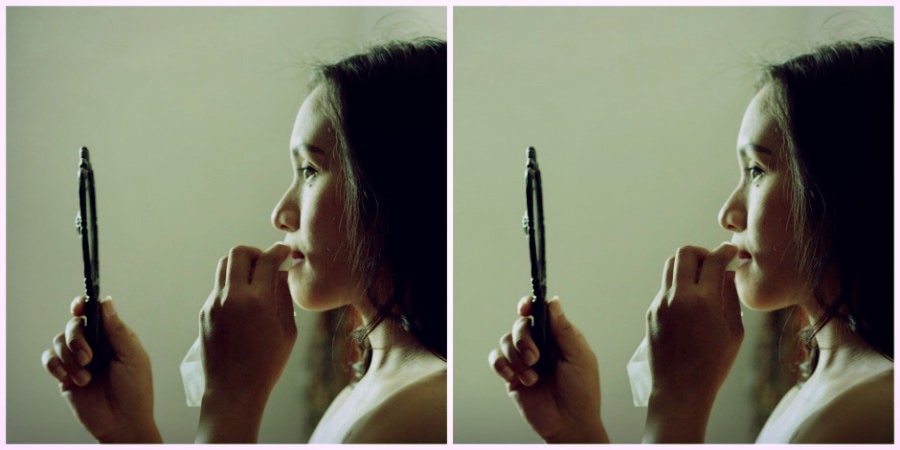If Your Mirror Could Talk, Here's What It Would Say
It doesn't matter what the mirror makes you think, it only matters what you think.
 Septian Simon via Unsplash
Septian Simon via Unsplash By Adele Espy
I have never liked the way that my body looks. And I thought my mirror had nothing but bad things to say.
My struggle with body image began at the age of 12 with over-exercising. I would train for cross-country running and Nordic skiing for up to five hours per day and would also do two sessions most days. I kept a training log and recorded how often I trained, how long, and at what intensity.
I turned to restriction after I became chronically ill with Gastroparesis (slowed motility through the GI tract) at the age of 20. By 23, my skiing career ended, because I was severely underweight and didn’t have enough energy to walk up a flight of stairs, let alone race in a Nordic ski race.
My last race was in Finland and I placed 104th (second from the last place and the girl in last was skiing with only one arm). Since I couldn’t exercise, I began purging. And when the restricting got really bad, I began binging and purging.
Gastroparesis causes me to vomit daily, regardless of the eating disorder, but the point is, I have a severe eating disorder, and with that, comes a lot of body dysmorphia and body-loathing.
I look at my nude body in a full-length mirror after stepping out of the shower. My eyes drift to my belly, my thighs, my cheeks — anything that I feel insecure about.
My belly skin wrinkles when I bend over to dry my toes. My thighs touch and I instantly fear I’ve gained weight. My cheeks look puffy and swollen from vomiting. I want to hide inside my condo, so that nobody sees my body about which I’m so insecure.
I wonder to myself, standing in front of my mirror, “What would you say to me, mirror?” It probably wouldn’t say “You are fat and need to lose weight!” It wouldn’t say, “You’re worthless and disgusting.”
It might say, “You’re enough,” and “Stop berating your body with these horrible thoughts.” What has my body done to me to deserve such awful treatment?
I look at my face for a moment. I focus on the spark in my eyes, that beautiful twinkle I hide behind hats pulled down too low. I look at my smile. The genuine joy I portray every time I see someone I love and my mouth automatically splits into a big smile. That is the real beauty.
I don’t care anymore if my thighs touch or if my belly has a little extra flesh hanging on. There are people in my life who care about the person that is inside my body, the real me. They don’t care about my appearance.
I’ve struggled with anorexia and body dysmorphia for years.
The conversations between my brain and the glass mirror would bring anyone to tears. I tell my body that it has failed me. I tell my body that it doesn’t deserve to be nourished, that it deserves the punishment of sexual assault. I am my own harshest critic.
My mirror looks at me this time and speaks clearly and firmly. It says, “You’ve been fighting against your body for a long time.” There’s a long pause, and then it says, “You must be exhausted.”
“Yes. Yes, I am.” I respond.
Now, I fill my mirror with sticky notes that display positive messages. Some of them say, “Your smile is beautiful, it lights up the room.” Others say, “You are not fat; you have fat. You also have fingernails, but you are not fingernails” (unknown author). One says, “You are beautiful.” Another says, “You are not your illness.”
I have quotes everywhere in my bathroom (most of them on my mirror, though). I’ve done this before at treatment centers, but most recently, I have gotten back into it ever since I started working with a recovery coach.
The idea is to surround myself with these positive thoughts until I truly believe them. It’s as close to a talking mirror as I can get.
Adele Espy is a writer who focuses on health and wellness, self-love, and self-care. For more of her self-care content, visit her author profile on Unwritten.

